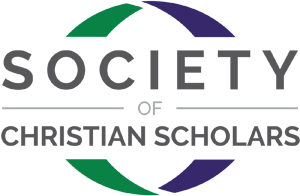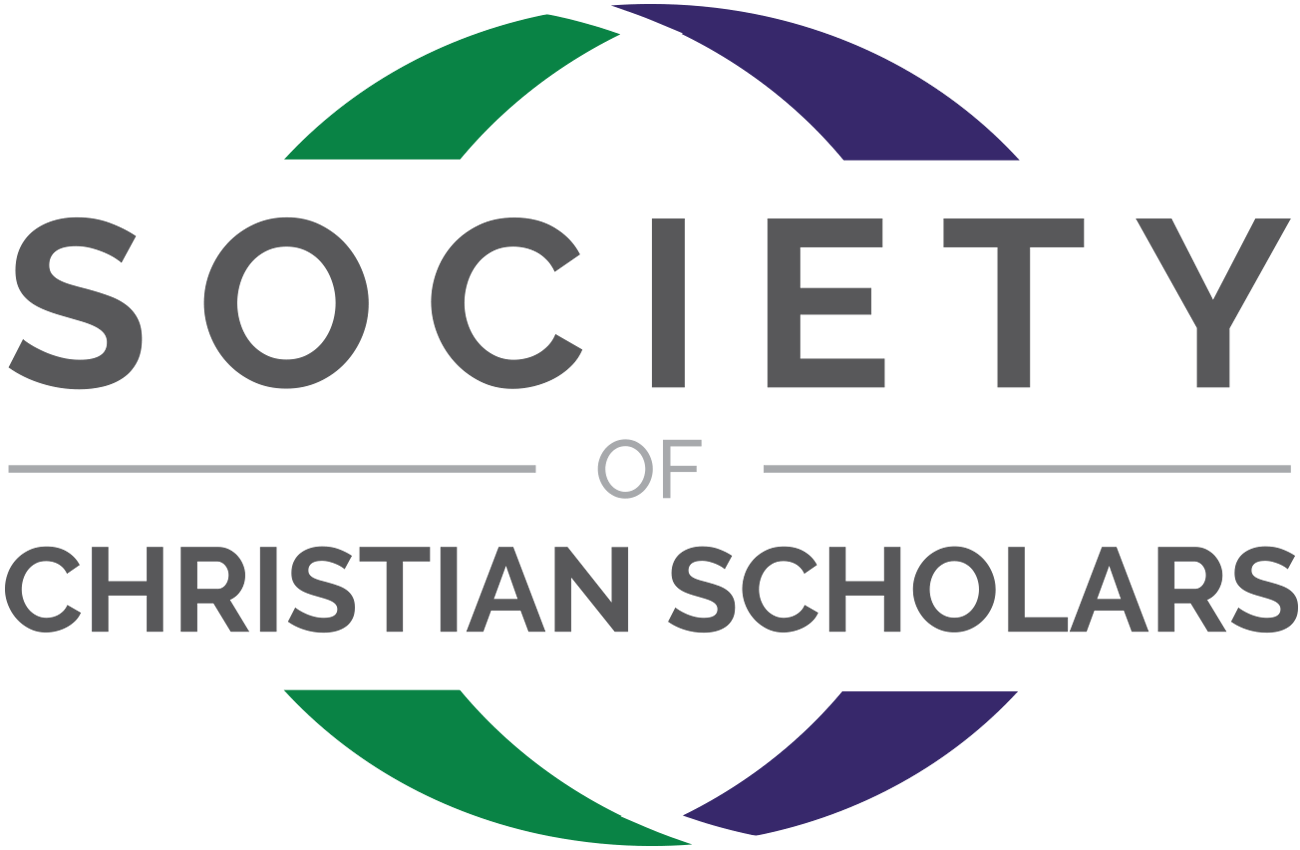Society Hiring Representative
The Society of Christian Scholars (www.SocietyofChristianScholars.org) seeks a full-time Regional Representative from one of the following regions: Caribbean, Middle East/North Africa, South Asia, or Eurasia (defined as countries north of China, Mongolia, and the Middle East; and countries east of Ukraine). A Society of Christian Scholars Regional Representative will contribute to a local and global movement of believing scholars by partnering with scholars in their region to develop and implement strategies to mutually equip one another for Christ’s glory. Find more information here.
The Need for Mentoring and Coaching of Christian Scholars
Dr. Peter Cimala
Prague
Every job has its pitfalls, challenges, and temptations, including academia. One way to navigate and overcome these issues is through mentoring and coaching. Academic mentoring and coaching aim to help scholars grow, achieve good results or even excellence, and sometimes just sustain themselves through difficulties and crises in the academic journey. In particular, Christian mentoring and coaching seek to address needs and issues beyond academia, including personal, professional, and spiritual needs. It is often challenging for pastors or Christian friends to provide adequate support to Christian scholars without understanding their academic background. Conversely, many intellectuals can be “nerds” and “introverts,” making isolation an easy trap for scholars.
Although we are created in the imago Dei (image of God), we are fragile human beings who suffer and live in a corrupted world. The Bible teaches us that it is not good to be isolated; rather, God wants us to have loving fellowships to live well. A network of relationships, including one-on-one mentoring and coaching or support groups, helps us use and develop our intellectual gifts to the glory of the Giver and His Kingdom. This support enables us to be and remain salt and light in academia, society, and the church. Mentoring and coaching relationships help us stay both bold and humble in all mentioned areas or roles.
Scholars are thinkers who focus on facts, data, and information. This gift is a privilege; however, information alone does not lead to transformation and maturity. Therefore, “Teaching and modeling are never enough in the developmental process” (see Cook 2021, 106). The author of this inspiring book emphasizes the critical need for coaching, which involves personalized support of individual development. Life transformation reaches our mind, heart, and character and requires more than great books, webinars, or conferences. We can be thankful to God for these excellent resources, but in the era of information overload and the digital age, I observe an increasing need for a personal approach that complements these sources.
There are several reasons why I consider mentoring and coaching crucial for personal and professional growth:
Personal Growth
Self-Awareness: Mentoring and coaching help individuals gain insights into their strengths, weaknesses, values, and beliefs. This self-awareness is essential for personal development and making informed decisions.
Goal Setting and Achievement: Coaches and mentors assist individuals in setting realistic and meaningful goals. They provide guidance and support in developing strategies to achieve these goals, fostering a sense of accomplishment and progress.
Confidence Building: Regular feedback and encouragement from a mentor or coach can boost an individual’s confidence. Knowing that someone believes in their potential can motivate individuals to take on new challenges and overcome self-doubt.
Skill Development: Personal development often involves acquiring new skills. Mentors and coaches provide resources, advice, and opportunities for learning, helping individuals enhance their competencies and capabilities.
Emotional Support: Personal growth can be challenging, and having a mentor or coach provides emotional support and guidance during difficult times. This support can help individuals stay resilient and focused on their growth journey.
Professional Growth
Career Guidance: Mentors and coaches offer valuable career advice based on their experience. They can help individuals navigate their career paths, identify opportunities for advancement, and make informed career decisions.
Networking Opportunities: A mentor or coach often has an extensive professional network. They can introduce mentees to key contacts, opening doors to new opportunities and expanding their professional connections.
Skill Enhancement: Professional growth often requires the development of specific skills. Mentors and coaches can provide targeted training, share industry knowledge, and offer practical tips to help individuals improve their job performance and advance in their careers.
Accountability: Mentors and coaches help individuals stay accountable to their professional goals. Regular check-ins and progress reviews ensure that individuals remain focused and committed to their development plans.
Feedback and Improvement: Constructive feedback from a mentor or coach helps individuals identify areas for improvement and take corrective actions. This ongoing feedback loop is essential for continuous professional growth.
Leadership Development: For those aspiring to leadership roles, mentors and coaches can provide guidance on developing leadership skills, managing teams, and navigating organizational dynamics. This support is crucial for effective leadership development.
After over 13 years in the role of coach and mentor to Christian scholars and PhDs, I have often received feedback along these lines: “Thank you for your time and interest! Thank you for listening! Thank you for your willingness to meet! Thank you for sharing your story! Finally, somebody understands my academic troubles! I feel more confident in this area. I understand better how to continue. Thank you for your prayers!” I am surprised that friendship and relatively small “investment” can have such a significant impact.
Is It Worth the Time, Energy, and Money?
Nothing is free, particularly as it relates to mentoring and coaching. Even if no payment of money is involved, such relationships are costly in time and effort. This is especially true for a series of one-on-one meetings that may last for a year or longer. Here are a few comments on the impact of good coaching or mentoring:
Enhanced Performance: Both personal and professional mentoring and coaching lead to improved performance. Individuals become more skilled, confident, and capable, contributing positively to their personal lives and workplaces.
Increased Satisfaction: Mentoring and coaching foster a sense of fulfillment and satisfaction. As individuals achieve their goals and grow, they experience higher levels of job satisfaction and personal happiness.
Long-Term Success: The benefits of mentoring and coaching extend beyond immediate improvements. They lay the foundation for long-term success by developing habits, skills, and mindsets that continue to benefit individuals throughout their lives and careers (e. g. it helps to prevent and deal with burnout).
Conclusion
In summary, mentoring and coaching are vital for fostering personal and professional growth. They provide the guidance, support, and resources necessary for individuals to achieve their full potential, leading to enhanced performance, satisfaction, and long-term success. This short overview raises several questions:
Do you see the need for coaching and mentoring?
Do you have any experience with one-on-one mentoring or coaching?
Do you know where to seek support?
Do you see the gift or passion to mentor others and support their growth?
The apostle Paul wrote, “But by the grace of God I am what I am” (1 Cor. 15:10 NAS). This is my experience too. Grace, God’s free and undeserved gift, has human faces and names for me—specifically, the great mentors in my life who have stood by me in both good and bad times. I have had the privilege of one mentoring and pastoral relationship that has lasted for over 20 years. My work is my way of giving back to my mentees what I have received. Sometimes mentoring is not just a series of short-term, time-limited meetings but a lifelong relationship in which a mentor helps a mentee reach their God-given potential (see B. Biehl, Mentoring, p. 27).
—
Books:
Biehl, Bobb. Mentoring. How to Find a Mentor and How to Become One. Aylen Publishing, 2005.
Cook, Terry. Lead, Develop, Care. LDN Publishing, 2021.
Review of Cossi Augustin Ahoga, Vers un modèle africain de dialogue interreligieux : Le cas de Vodun Xebyoso et de l’Église des Assemblées de Dieu dans la région Maxi au Bénin (Towards an African model of interreligious dialogue: The case of the Vodun Xebyoso and of the Assemblies of God Church in the Maxi region of Benin)
Carlisle, UK: Langham, 2023, xvi + 336 pp., paper
Reviewed by Genevieve Guei and Stephen Ney.
This book by one of our fellow leaders in the Society of Christian Scholars should be of interest to those who study interreligious dialogue or missiology, who wonder about the dynamism of African traditional religions today and their effects on the African church, and who seek to learn how Christian love can be worked out through academic research and reflection. Many Society members will also be inspired by its illustration of how social science methodologies can equip us to engage in God’s mission.
The book describes a conflict in Benin, West Africa between members of the Assemblies of God churches (EEAD) and adherents of Vodoun. This conflict has prevented the understanding and implantation of the gospel among these people.
The author develops the African Method of Inter-Religious Dialogue (MADIR), a dramaturgical, collective, and incarnational approach, which prioritizes the historical, sociological, and anthropological analysis of the groups before investigating the conflict itself. The people studied being non-literate (verbomoteur), the analysis required the researcher to master oral and non-verbal communication, along with the anthropology of the gesture (cf. C20 French anthropologist Marcel Jousse). This required participatory education and initiation into both religious communities.
Ahoga discovers that during the thirty years of EEAD’s engagement with the Maxi people, Christians built evangelical cultural ghettos. They did it through the French language, a disembodied understanding of the person, and the refusal of social presence. So they tore the community apart and left the impression that Christianity is only for misfits. As a solution, the researcher proposes a process of discipleship through dialogue and the discovery of shared identity and history, all made possible by Christ-like love, following the pattern of Christ’s incarnation. The Christian seeking to reach the Maxi should come empty-handed onto the mission field, identify himself or herself with the people to be evangelized, and live among them. “When it’s love that motivates mission, the strategy of identifying with the other to dialogue with them becomes the source that will generate disciples born of God’s love. Conversion will cease to be a flight from hell” (p. 257, translation ours).
Though Ahoga’s work is profoundly scientific in the Francophone sense of the word (it is faithful to a precise methodology and a tradition of scholarship), we admire how it is also autobiographical; it reveals the development of the author’s missional thinking because he himself becomes the embodiment of the MADIR approach to resolving inter-religious conflicts. One concern we have is that the researcher seems at times to assume that interreligious conflicts would not exist at all if Christians followed this approach, which we regard as an unlikely assumption. But we have the opinion that the work’s usefulness arises largely from another, more solid assumption: that Christians ought, if possible, inasmuch as it depends on us, to “live in peace with everyone” (Rom 12:18). This book stands as a testimony to the fact that social science scholarship can help Christians to walk in the way of peace.
Genevieve K. Guei (PhD, Université Félix Houphouët-Boigny) researches conflict and migration in West Africa. She is a trainer for the Africa Study Bible and a catalyst in the Logos and Cosmos Initiative, an International Fellowship of Evangelical Students (IFES) program that trains graduate students and emerging scholars to integrate theological, scientific, and cultural knowledge.
Stephen Ney (PhD, UBC Vancouver) is adjunct lecturer at the University of Makeni in Sierra Leone and Curriculum Manager for the IFES Logos and Cosmos Initiative.
Society Library
Many Thanks to Gary Wittig – Former Library Curator
Gary joined the Library Curator team in June 2022 and has served the Society in this capacity for two years. He has contributed much to the progress of the Society’s Library by adding to the collection, serving as leader of the Library Reading Group meetings, and participating actively in the monthly meetings.
We want to express our deepest gratitude for Gary’s contributions and for the chance to interact with him at our monthly meetings. Gary, we will truly miss you and bid you farewell but not goodbye as you enter into another journey of your life.
Bon Voyage! God be with you.
Library Curator Team
Looking for feedback on the Study Guide Series
If you’ve benefitted from Issue 1 of the SOPHIA Study Guide Series, ‘The Biblical Story and the Story of Academic Disciplines’, whether the English, French, Spanish, or Chinese versions, we’d love to hear from you. Please share your thoughts about the content and how it has impacted your academic and spiritual life by emailing Dr Stephen Garrett at sgarrett@global-scholars.org. Thank you!
Library Reading Corner
This month’s Library Reading Corner feature includes five library resources under the library category of Pursuing Vocational Excellence. These resources provide further reading for the July, 2024 webinar, ‘Examining the Research Process: A Perspective’ presented by Dr. Jim McCloskey.
Library Search Terms: theological research methodology, research methodology, theological research, Christian theology and research, social sciences- research methods, research as worship, qualitative research, technology in research, qualitative analytical software, research and the Christian worldview
Title: In Search of a Christian Theological Research Methodology by Colin Holmes and David Lindsay
Brief Description: This article discusses the relationship between Christian theology and research methodology as an academic approach to conducting research within an academic discipline guided by a Christian worldview.
Title: Practical Theology and Qualitative Research (2nd ed.) by John Swinton and Harriet Mowat
Brief Description: This book addresses issues relating to the application of qualitative research methodology to the field of practical theology, with a particular focus on scholars pursuing a doctoral degree in practical theology. It includes a chapter on practical theology and action research.
Title: Social Research Methods (5th ed.) by Alan Bryman
Brief Description: This book’s four parts cover the research process generally and then the three main research approaches (quantitative, qualitative, mixed-methods). It is a good resource for beginners in academic research and also for professors of research methodology and research supervisors.
Title: A Development Research Agenda for Online Collaborative Learning by Thomas C. Reeves, Jan Herrington, and Ron Oliver
Brief Description: This article summarizes studies applying the principles of developmental research to the field of online collaborative learning. “Learners enrolled in a common unit of study for training, continuing professional development, or the pursuit of an academic degree will work together online to solve complex problems and complete authentic tasks.”
Title: Using Qualitative Analysis Software to Facilitate Qualitative Data Analysis by Vicente Talanquer
Brief Description: This is Chapter 5 of the book Tools of Chemistry Education Research by D. Bruce et al., which provides detailed descriptions of a number of Computer Assisted Qualitative Data Analysis (CAQDAS) packages including Atlas.ti and NVivo software. Detailed guidelines on the application of these softwares to the qualitative data analysis process are also provided.
Please contact the Society’s librarian, Dr Marlene Hines, at librarian@societyofchristianscholars.org for further assistance.
Upcoming Webinars
Be sure to check the Webinars Page for third-party webinars that are often added on short notice and for updated presenters and topics that may be helpful in equipping you to bring the gospel to bear in your university context.

Study as Spiritual Formation by Ellen Charry – Thursday, 19 September 2024 at 1400 UTC
The retrieval of the literature of Christian spirituality is having a powerful effect on Christian belief and practice. However, the separation of spirituality from the academic study of theology, Christian history, and biblical studies is artificial. Some contend that such academic study of the theological disciplines undermines simple faith and that after dismantling naïve faith, one must reconstruct one’s faith at the level of second naiveté, as Paul Ricoeur put it. While many beginning theology students may experience something like this, it is unfortunate and unnecessary.
On Thursday, 19 September 2024 at 1400 UTC, Prof. Ellen Charry, Emerita Professor of Theology at Princeton Theological Seminary in Princeton, NJ (USA), will expound upon the idea that the academic study of the Christian faith is spiritually formative when we consider what the biblical material or theological doctrines intend to do emotionally and socially to those who take them seriously. What does it mean to experience the ideas being expressed? Intellectual growth is not merely cognitive but also spiritual, emotional, and moral.
Charry maintains that healthy people grow throughout their lives. Taking in new ideas is part of normal human development. The question, then, is not whether academic study damages simple faith, but how everything that we experience and learn throughout life may be filtered through lenses of an intentional life–in the case of a Christian, a Christian life.
Disclaimer: The views and opinions expressed in the Addenda are those of the authors and do not necessarily reflect the views or positions of the Society of Christian Scholars.

